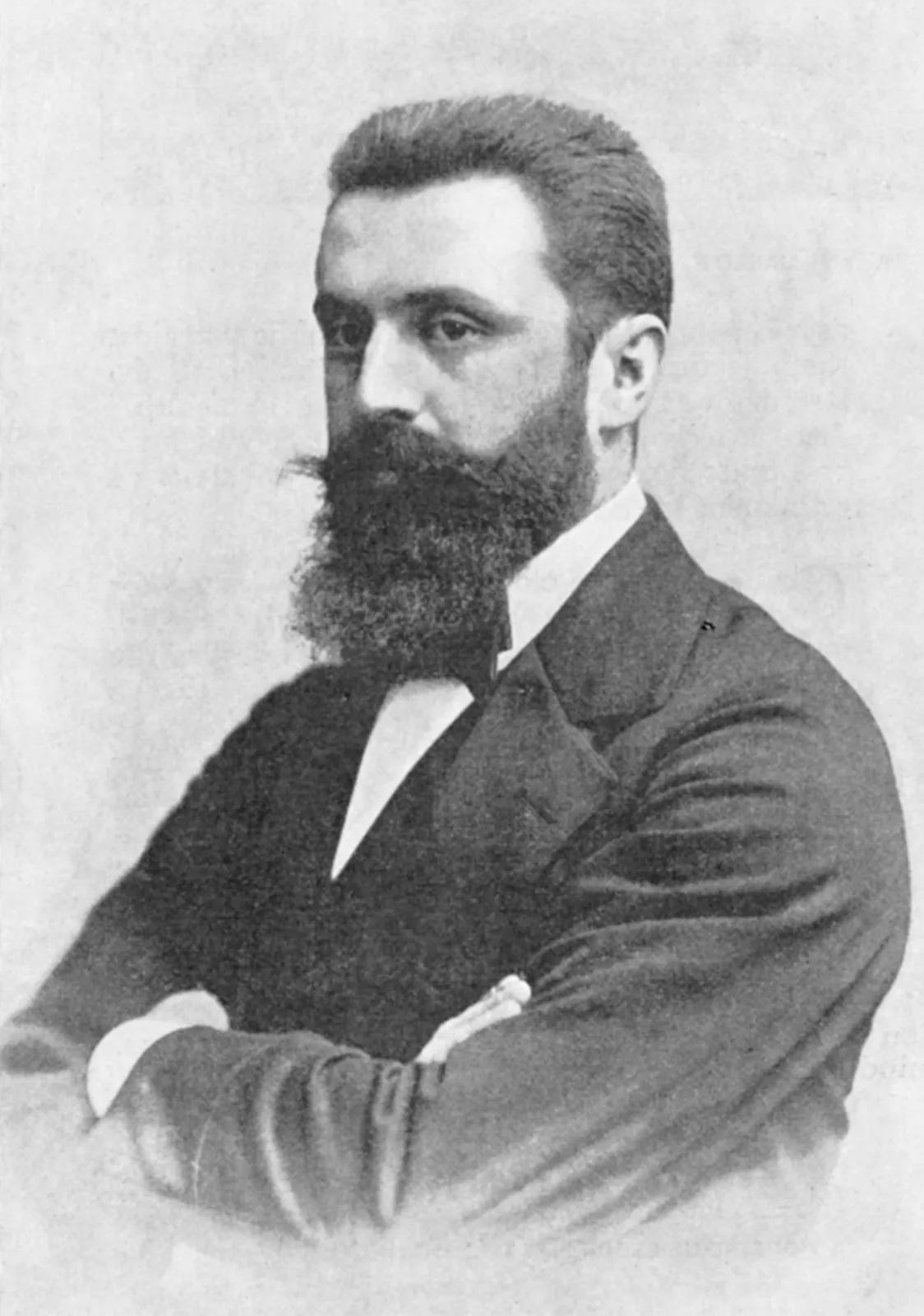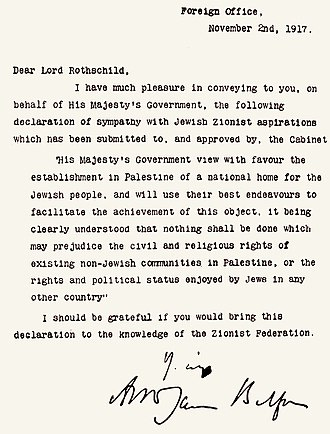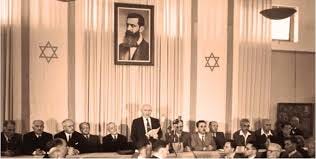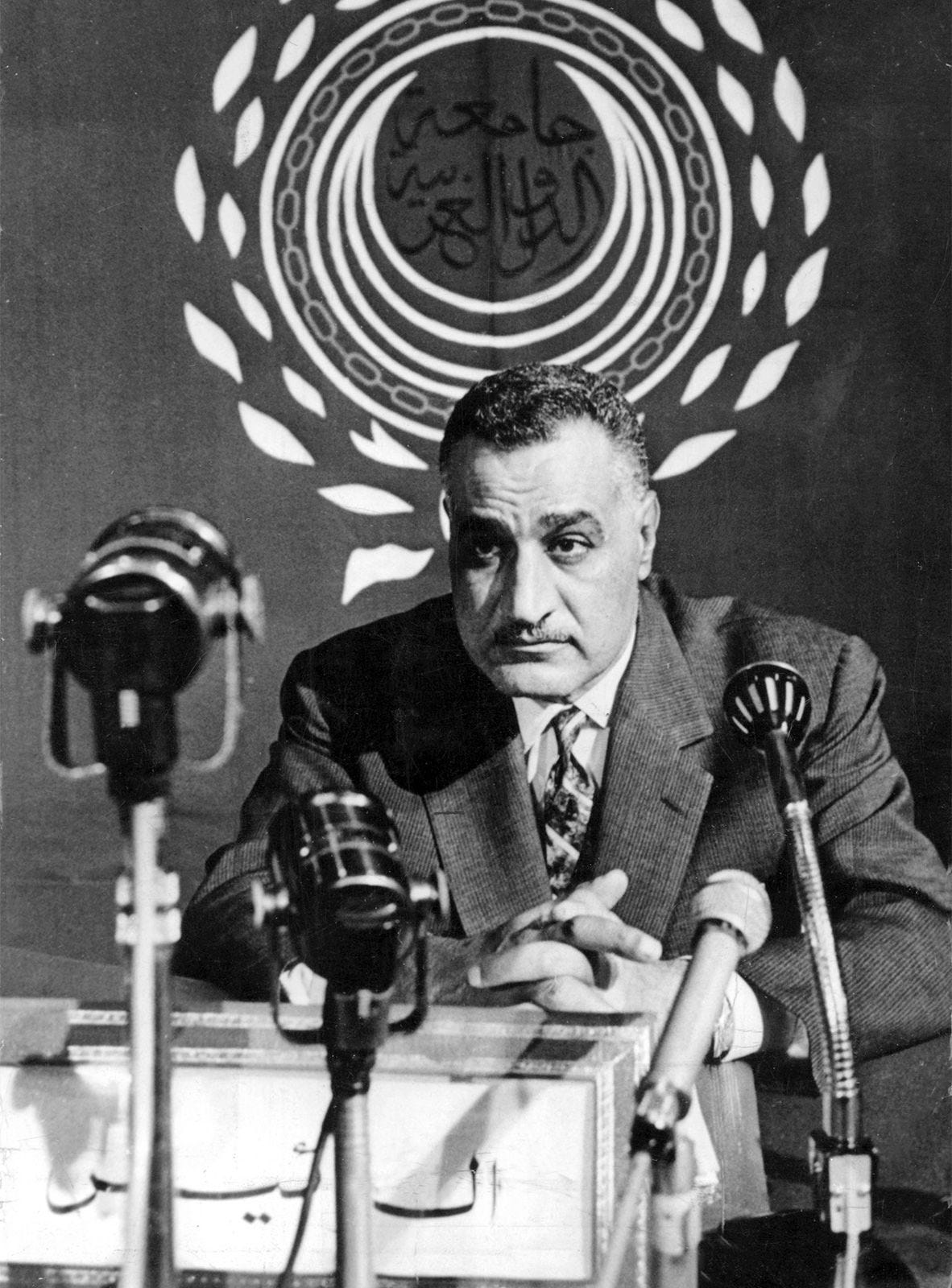The Palestinian-Israeli conflict is one of the most contentious subjects in our culture. The Palestinian-Israeli conflict arose long before the State of Israel. I read through a selection of texts on the subject, from the late 19th century through the aftermath of the Six-Day War in 1967. Below, I give a brief analysis of each document.
Obviously this is an arbitrary selection of thousands upon thousands of texts. And the current factors of the situation are not what they were in the late 1960’s. But in Theodore Herzl’s The Jewish State, “The Balfour Declaration”, “The White Paper”, The Jewish Agency for Palestine's “Zionist Reaction to the White Paper”, “The Arab Case for Palestine” by the Arab Office, Israel’s Proclamation of Independence, Gamal Abdel Nasser’s “On Zionism and Israel”, and an interview with Yasir Arafat from 1969, we can see the full gamut of attempted solutions to this conflict.
I have included online links to all of the documents, except, unfortunately, the last…which in many ways is the most interesting. However, the interview can be found in The Israel-Arab Reader: A Documentary History of the Middle-East Conflict, edited by Walter Laqueur and Dan Schueftan.
https://www.jewishvirtuallibrary.org/quot-the-jewish-state-quot-theodor-herzl
In The Jewish State, Theodore Herzl, often called the “father of modern Zionism”, addresses the “Jewish Question”.
The historical irony for Jewish people since the Middle Ages is that, as they migrate to areas where they are not persecuted, their mere presence results in their persecution. Until a cohesive political solution is found for Jewish people everywhere, anti-semitism will persist. Herzel posits that “the Jewish question is no more a social one than a religious one…it is a national question”. Jewish people have assimilated into whatever communities they enter. But they have never been fully accepted even where they resided for centuries. If everywhere they go, they hear “that classic Berlin phrase: ‘Juden Raus!’ (Out with the Jews!)”, then they need a place of their own to withdraw to. By following Herzl’s careful plan, a sovereign nation for the Jews is possible.
“The Balfour Declaration” is a short letter from Lord Arthur James Balfour to Lord Rothschild, released as an official public document, from November 1917. In it, Balfour informs Rothschild of the British Cabinet’s approval of a Jewish home in Palestine. But there is a caveat: that “nothing shall be done which may prejudice the civil and religious rights of existing non-Jewish communities in Palestine”.
https://www.jewishvirtuallibrary.org/british-white-paper-of-1939
In “The White Paper”, the British government established its revised policy regarding Palestine. While the British government is “unable at present to foresee the exact…forms which government in Palestine will eventually take”, their objective is self-government for both Jews and Arabs under a single state. The paper gives a timeline in which this transition would take place. In qualifying language, the paper addresses Jewish immigration. The British government believes an unchecked influx of Jewish people into Palestine will eventuate in “a fatal enmity between the two peoples…and the situation…may become a permanent source of friction amongst all peoples of the…Middle East”. Due to the “unhappy plight” of large numbers of Jews in Europe at the time, limited Jewish immigration would be allowed during the following five years.
https://www.jewishvirtuallibrary.org/zionist-reaction-to-the-white-paper-of-1939#:~:text=The%20following%20response%20was%20issued,home%20in%20their%20ancestral%20country.
The Jewish Agency for Palestine’s “Zionist Reaction to the White Paper” refers to Palestine as “[The Jewish] national home in their ancestral country” and states that the new Palestinian policy is “a surrender to Arab terrorism”. A Jewish rebellion will be inevitable. Putting this in the context of its time (1939), which is “the darkest hour of Jewish history”, this policy deprives the Jews of their “last hope”. Jewish freedom, it is implied, is possible only with Jewish immigration into their historic home.
https://courses.lsa.umich.edu/israel-palestine/wp-content/uploads/sites/142/2013/12/099.-Hadi-121-131.pdf
The Arab Office, in “The Arab Case for Palestine”, claimed that Arabs are the indigenous inhabitants of Palestine. The “alien immigrants” wishing to turn the Arab majority into a minority do so on the pretext of a historical connection which effectively ceased many centuries prior. Already the treatment of Palestine by Western powers and the Zionist presence has prevented Palestine from participating both culturally and economically in the larger Arab world. It has also prevented Palestinians from achieving any form of administration over their Palestine. All of “these evils”, the Arab Office states, “are due entirely to the presence of the Zionists” . More Jewish immigrants will only increase these evils. If Jewish people do continue to enter Palestine, the political unrest and violence will also increase. Already the Jewish people in Palestine possess far more resources than their Arab neighbors. The goal of Zionism is to establish an expansive Jewish state. Zionism itself is the problem. A truly representative democratic government should be established immediately, rather than waiting for a time when the Jews have the majority. The concept of a partitioned or bi-national state must be rejected on the grounds that it denies the rights of the majority.
https://avalon.law.yale.edu/20th_century/israel.asp#:~:text=THE%20STATE%20OF%20ISRAEL%20will,complete%20equality%20of%20social%20and
In the “Proclamation of Independence of the State of Israel”, Israel is proclaimed the site at which Judaism and Jewish identity was formed. The Balfour Declaration and the Mandate of the League of Nations affirmed the historical connection of the Jews with Palestine. The Holocaust proved the need to end Jewish homelessness. The United Nations adopted a resolution “requiring” the establishment of a Jewish state in Palestine. With the termination of the Mandate, the new state of Israel is established. This state will “be open to the immigration of Jews from all countries”. Despite the “wanton aggression” of Arab inhabitants of Israel, the Council calls on Arabs everywhere to cooperate with Israel for the common good of all.
https://www.scribd.com/document/839359236/6e-Nasser-On-Zionism-and-Israel-1
Gamal Abdel Nasser, in “On Zionism and Israel”, asserted quite the opposite: the liberation of Palestine is a matter of self-defence against colonialist agents, that “pack of hungry beasts”. In a series of speeches, Nasser repeatedly uses the word “liberate” to emphasize the need to militarily prepare to battle Israel, as well as the Imperialists who support them.
In an interview from 1969, Yassir Arafat, who had just become head of the PLO, explained how the Zionist movement, as he sees it, has failed. Israel must either expand until it contains all the Jews in the world, or find an alternative solution. The solution offered by the PLO is the creation of a democratic Palestinian State for anyone who wishes to live in peace. The Jewish people are themselves Arabic. The objective of Fatah is to end any “sectarian notion which might exist among the Arabs”. The Jews themselves must be liberated from Zionism. The solution offered by the UN Security Council is only designed to protect the current state of Israel, which is inherently racist.
Of all the voices and opinions here, it is only Arafat that understands both the Jewish and Muslim populations of Palestine/Israel as Arab peoples. To begin with Herzl’s Zionist vision of a nation in which Jewish people can be free from persecution, and end with Arafat’s condemnation of the Zionists who persecute his people—whatever one’s beliefs—is to reveal one of the great ironies in human history.




![1888 - 2023] Evolution of Israel / Palestine borders from the Ottoman Empire to independence : r/Maps 1888 - 2023] Evolution of Israel / Palestine borders from the Ottoman Empire to independence : r/Maps](https://substackcdn.com/image/fetch/$s_!drWs!,w_1456,c_limit,f_auto,q_auto:good,fl_progressive:steep/https%3A%2F%2Fsubstack-post-media.s3.amazonaws.com%2Fpublic%2Fimages%2Ff346a434-eeef-40ca-9c88-60b43d75d337_2334x990.png)




